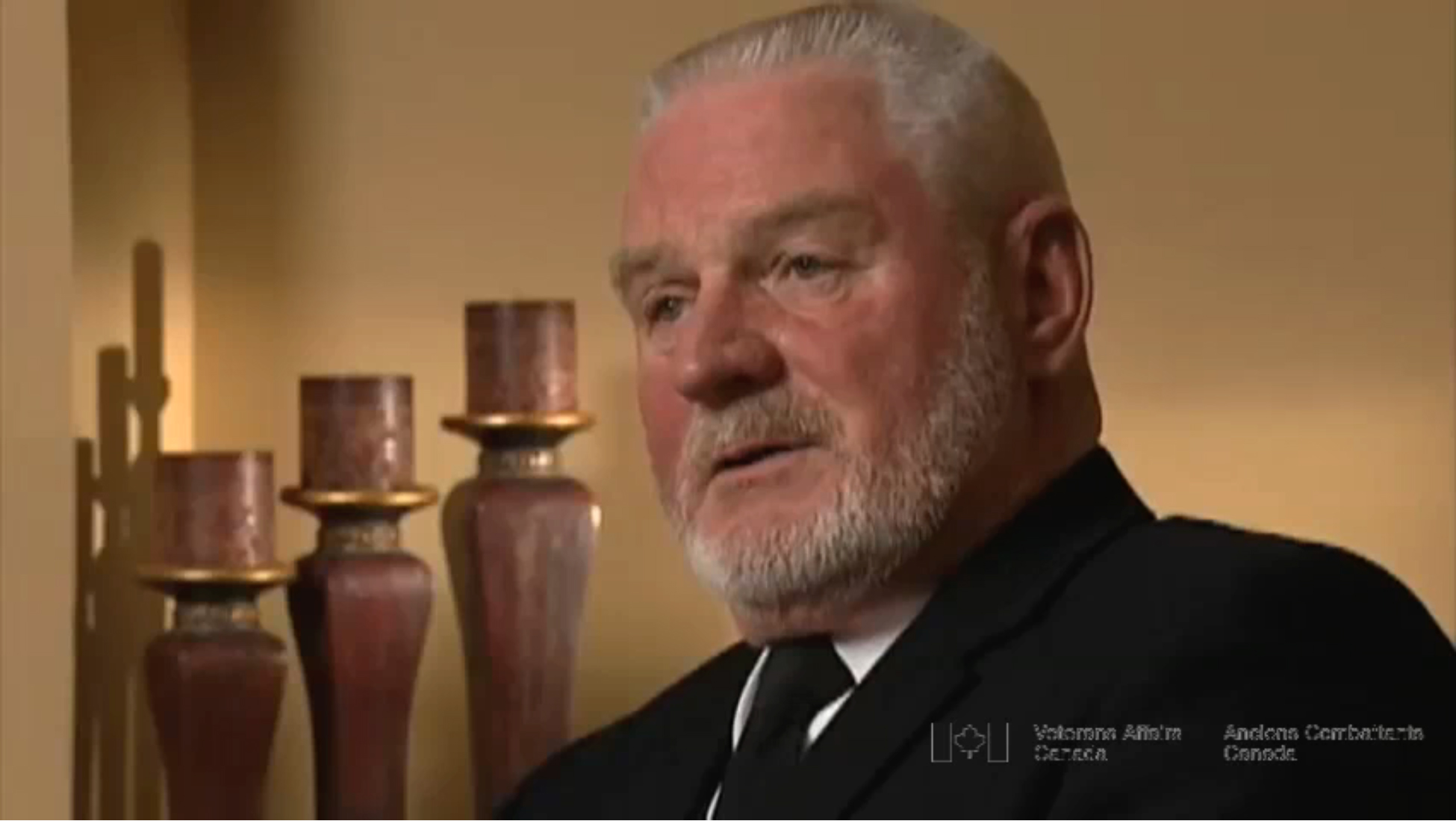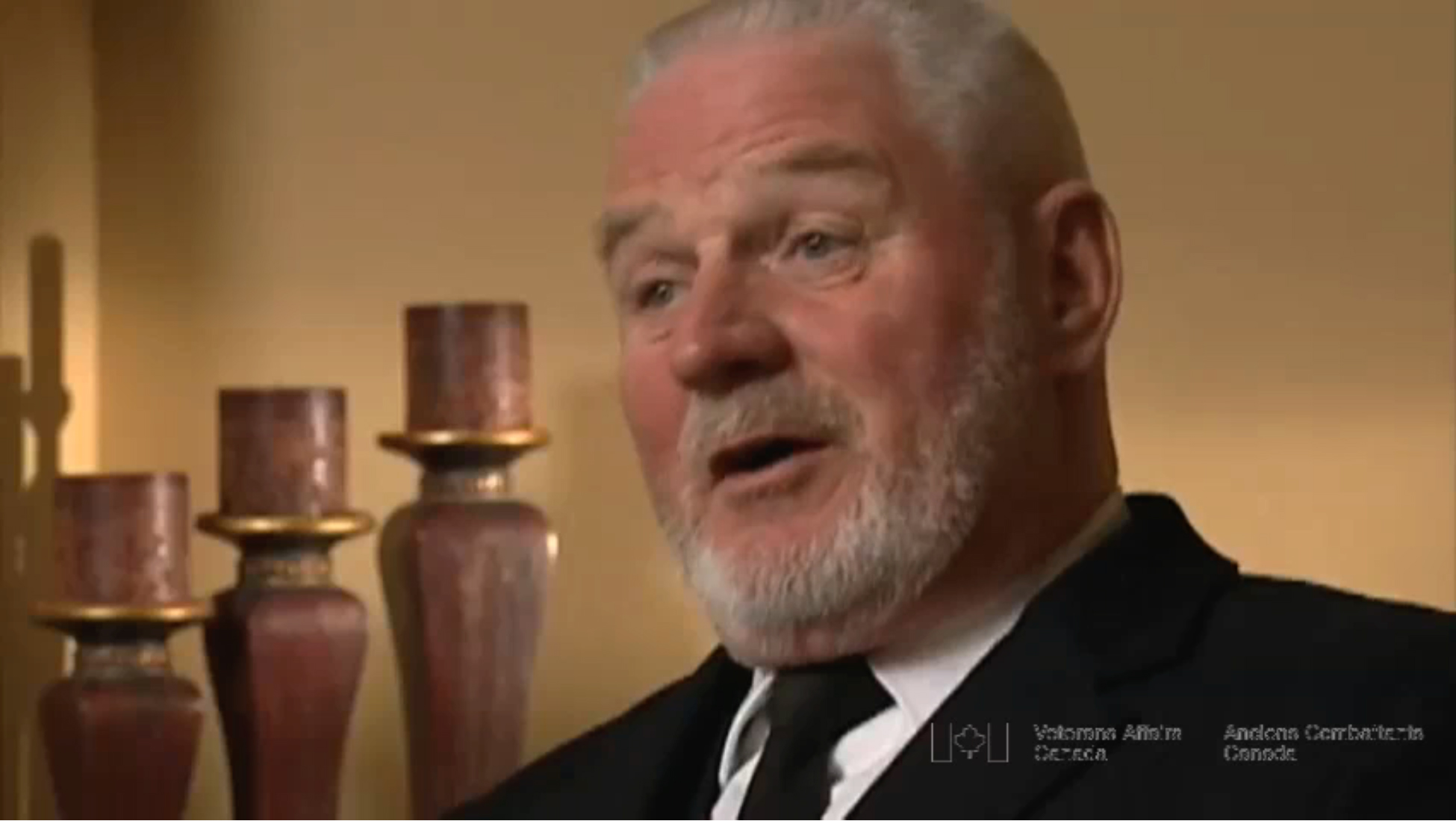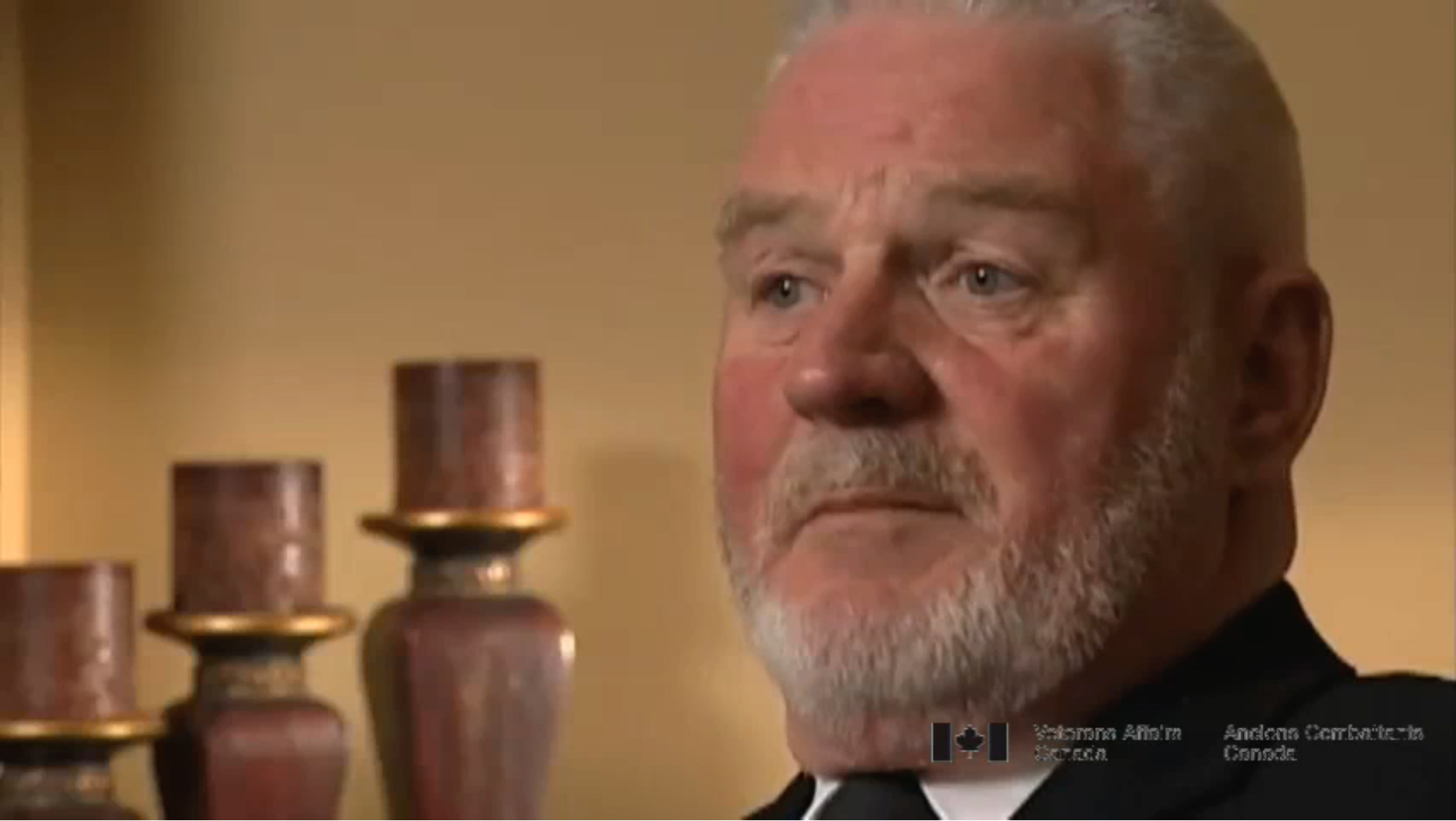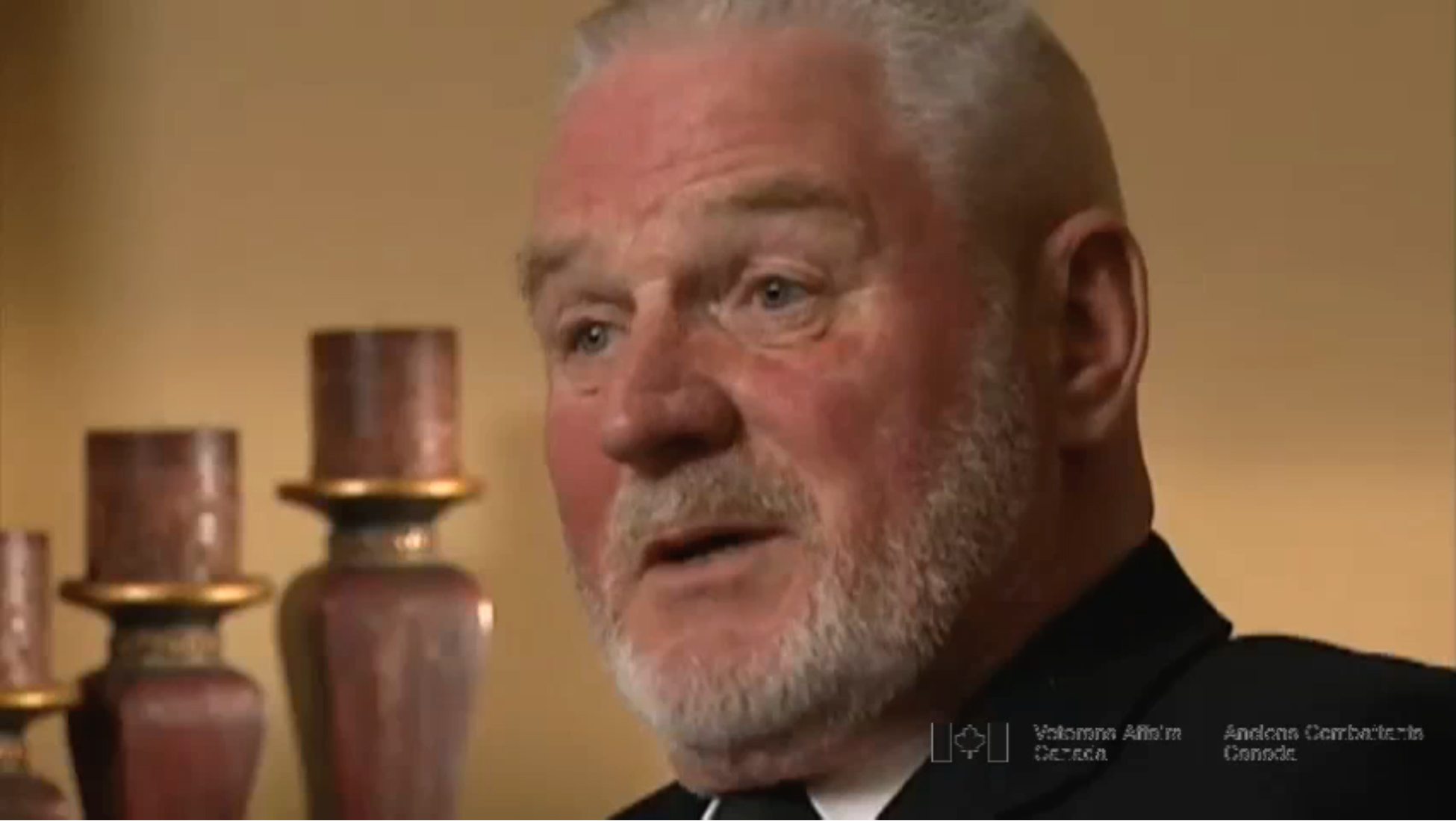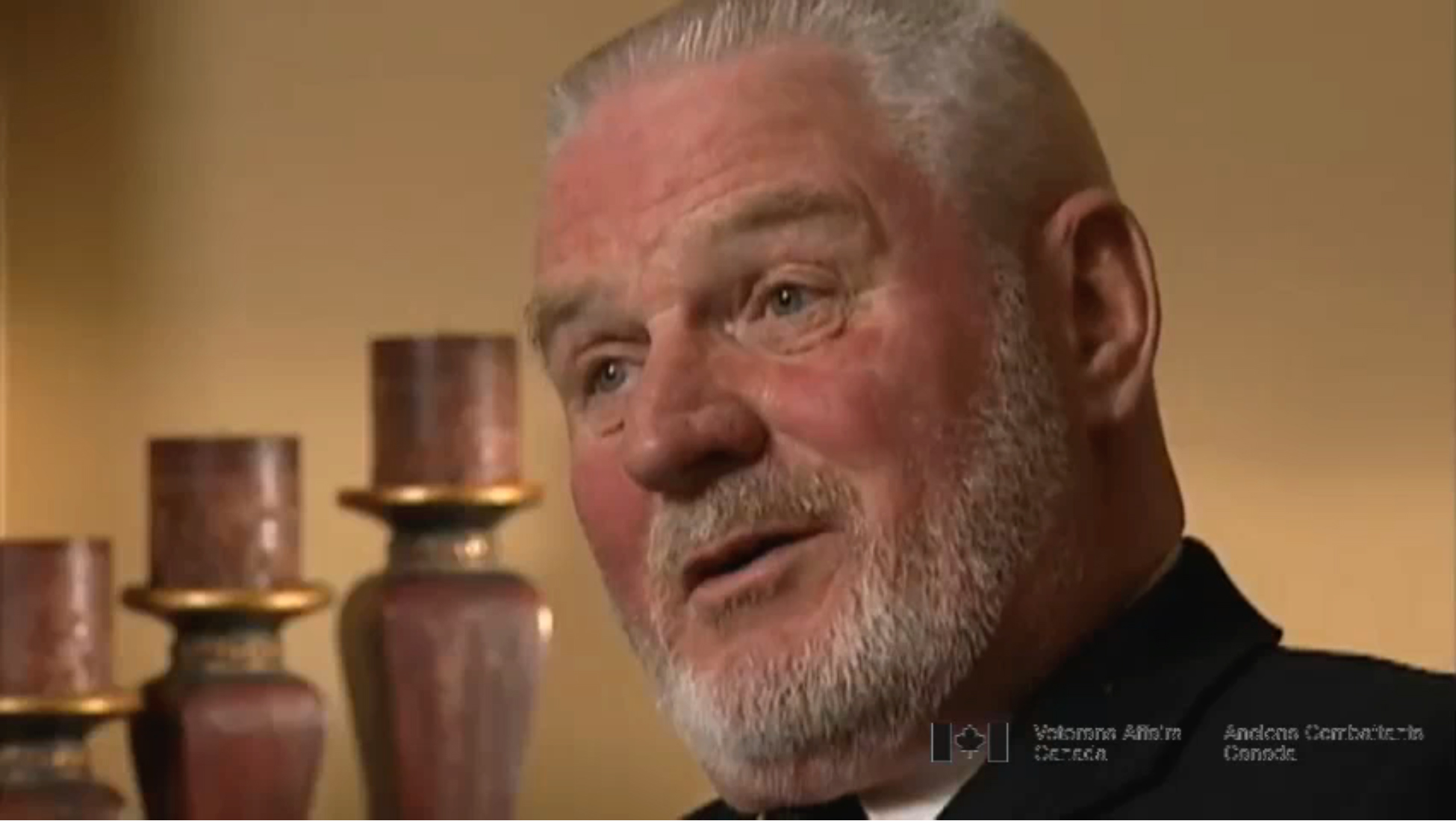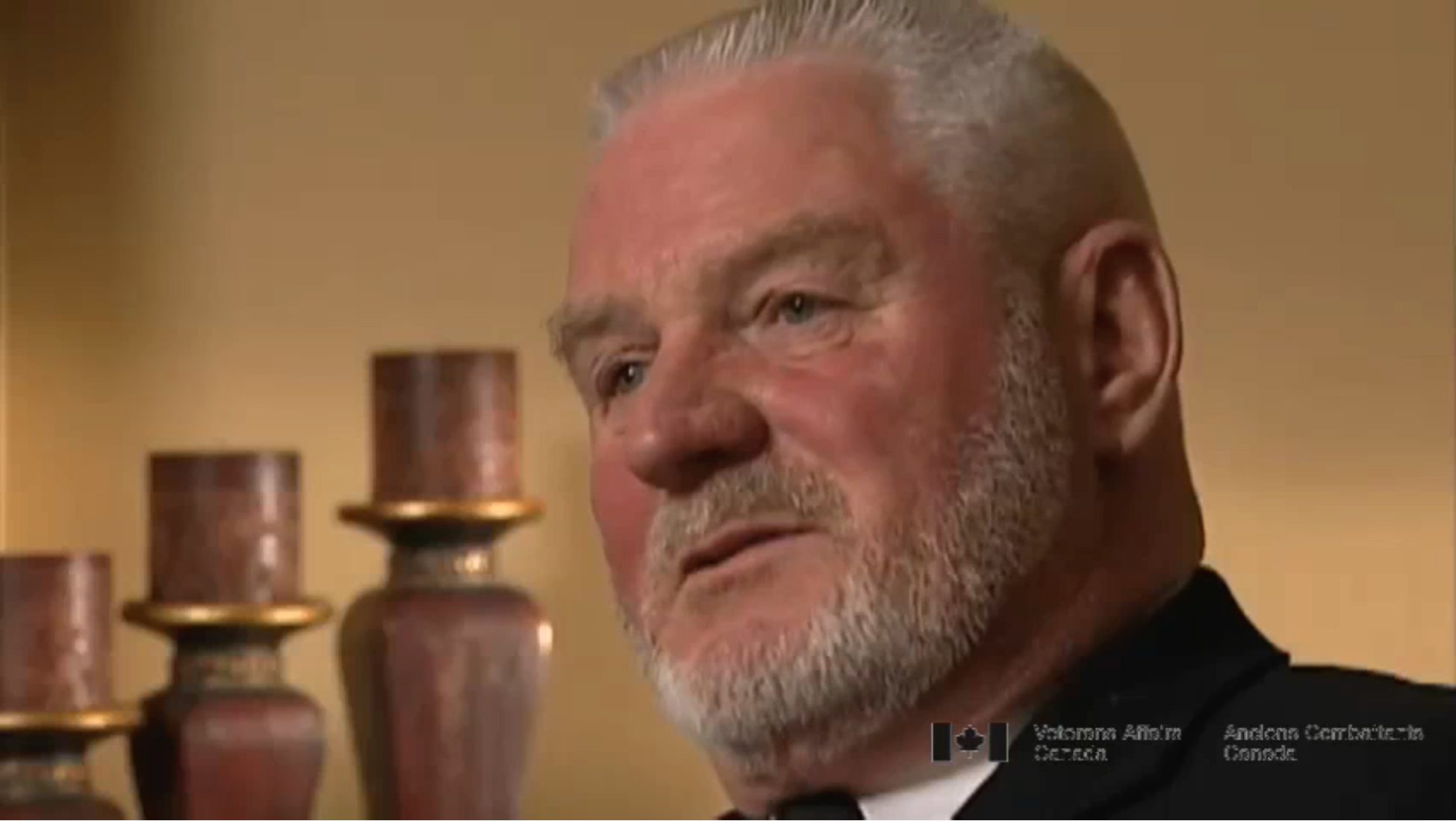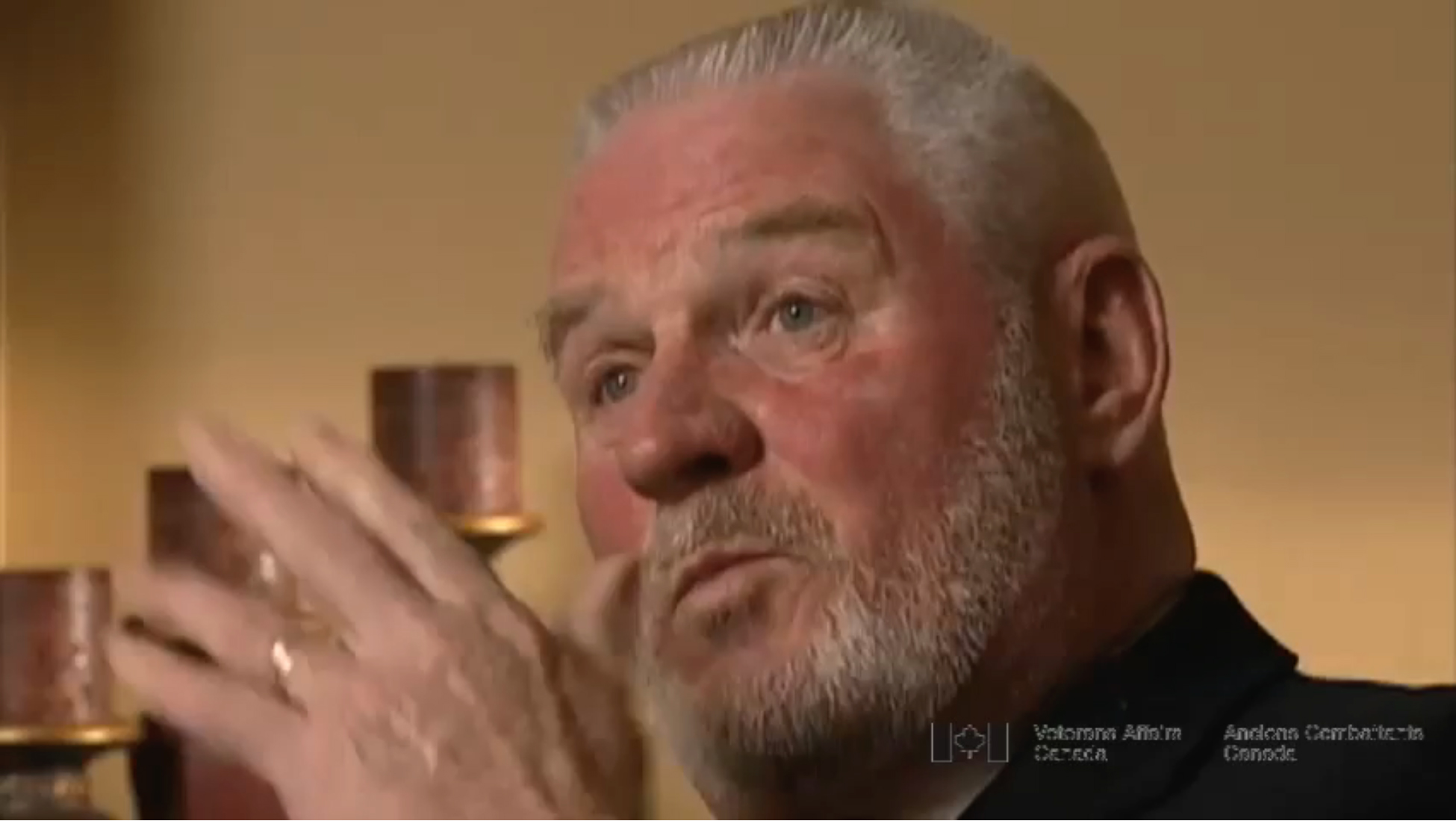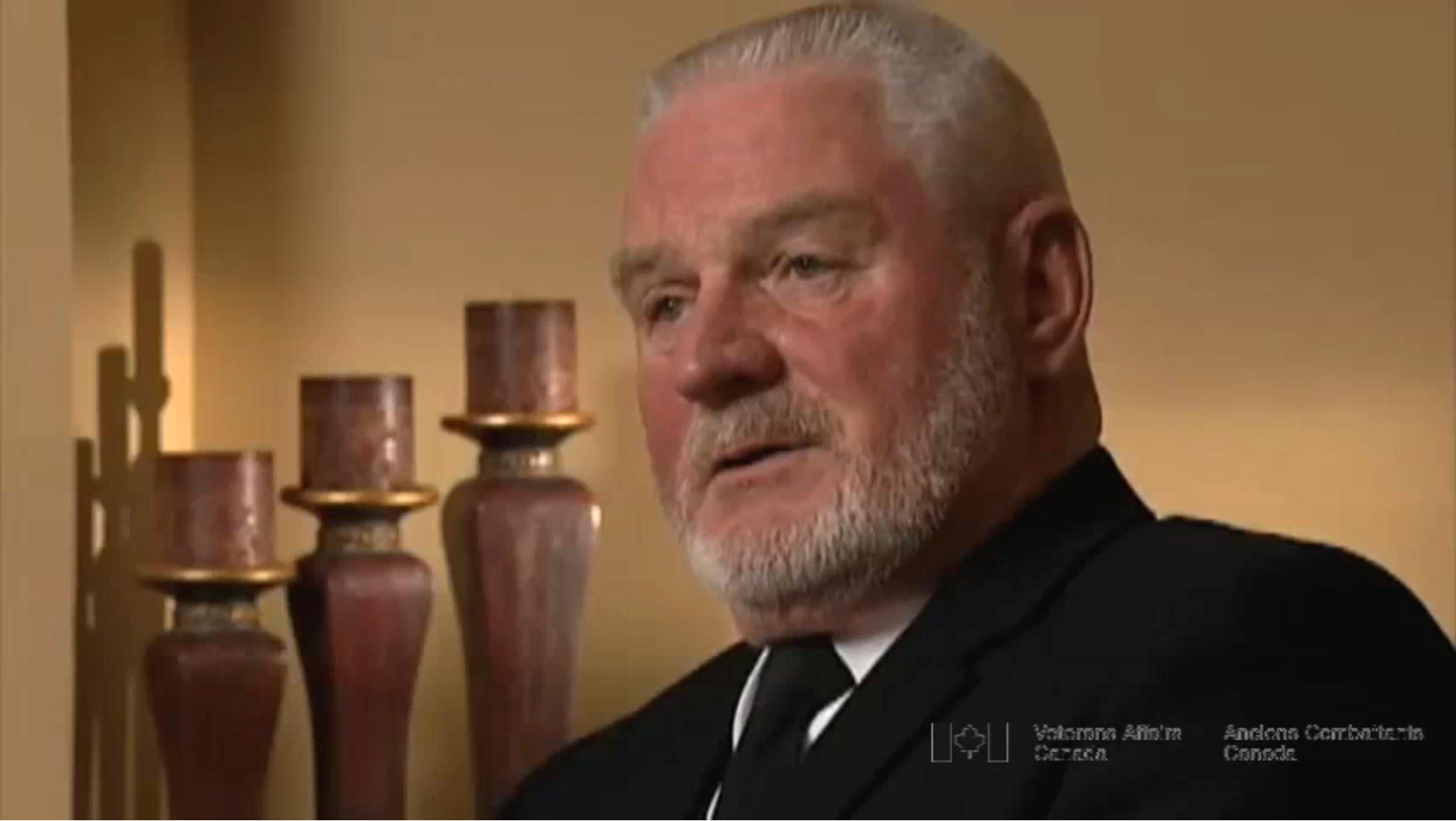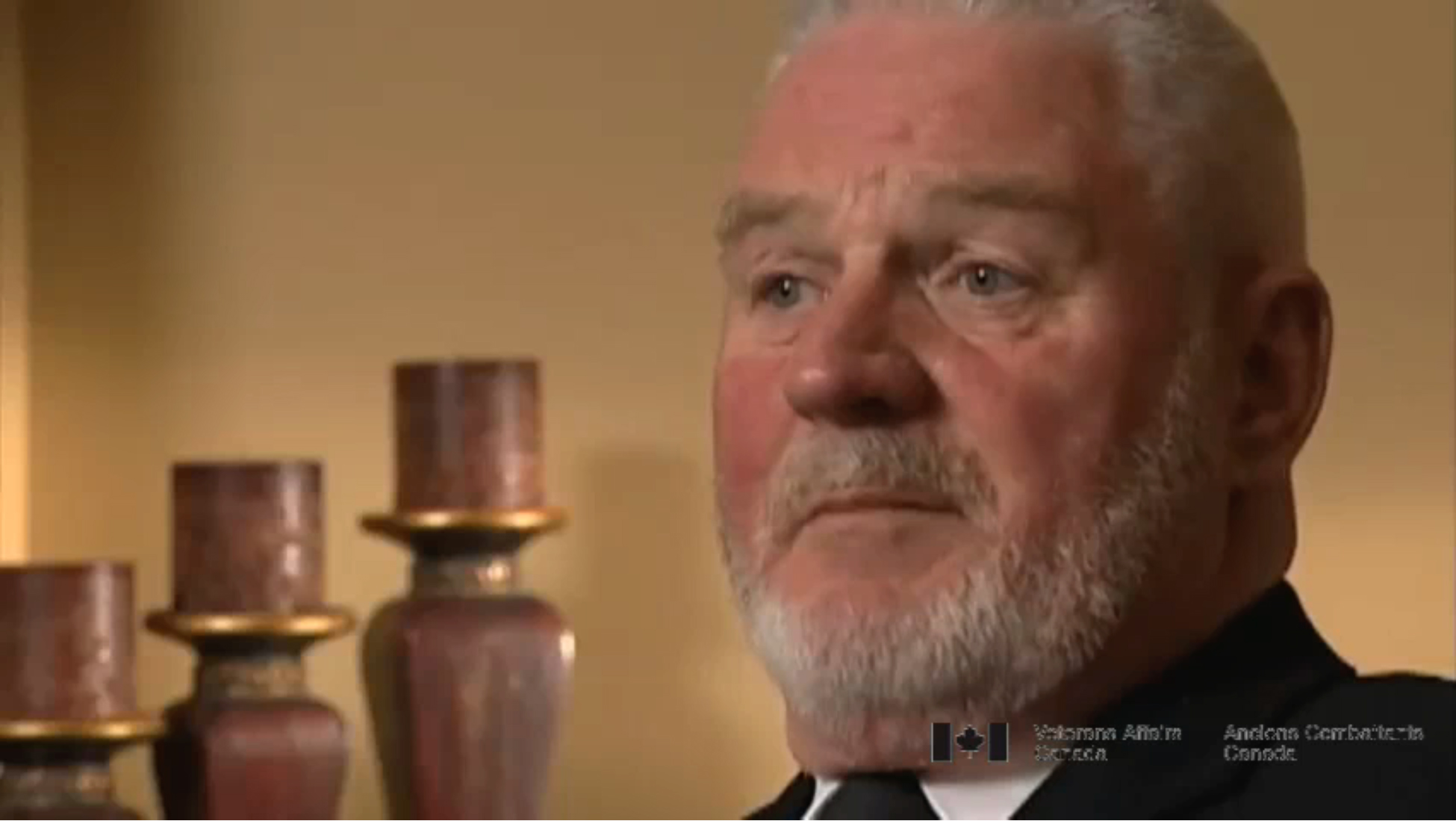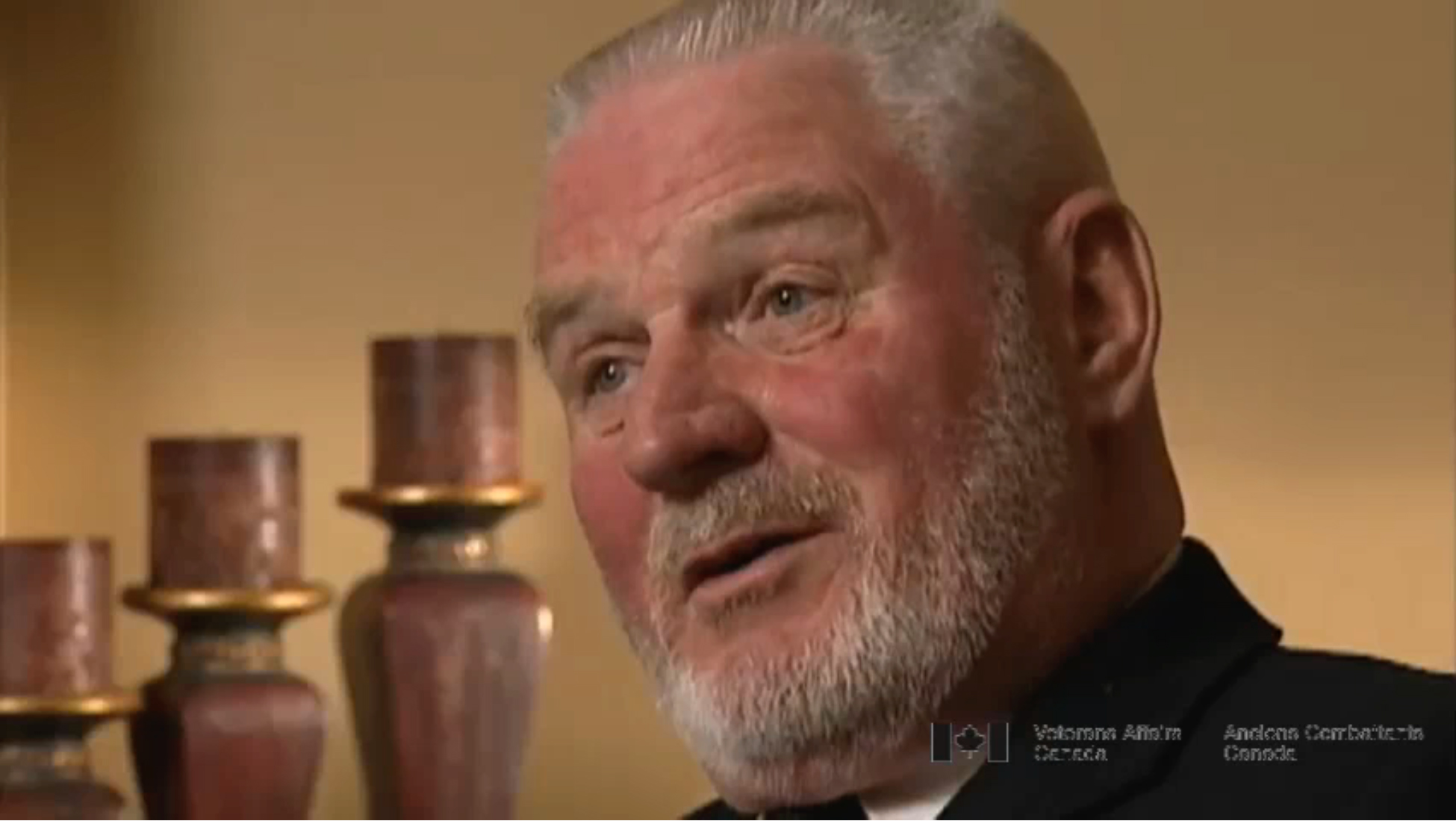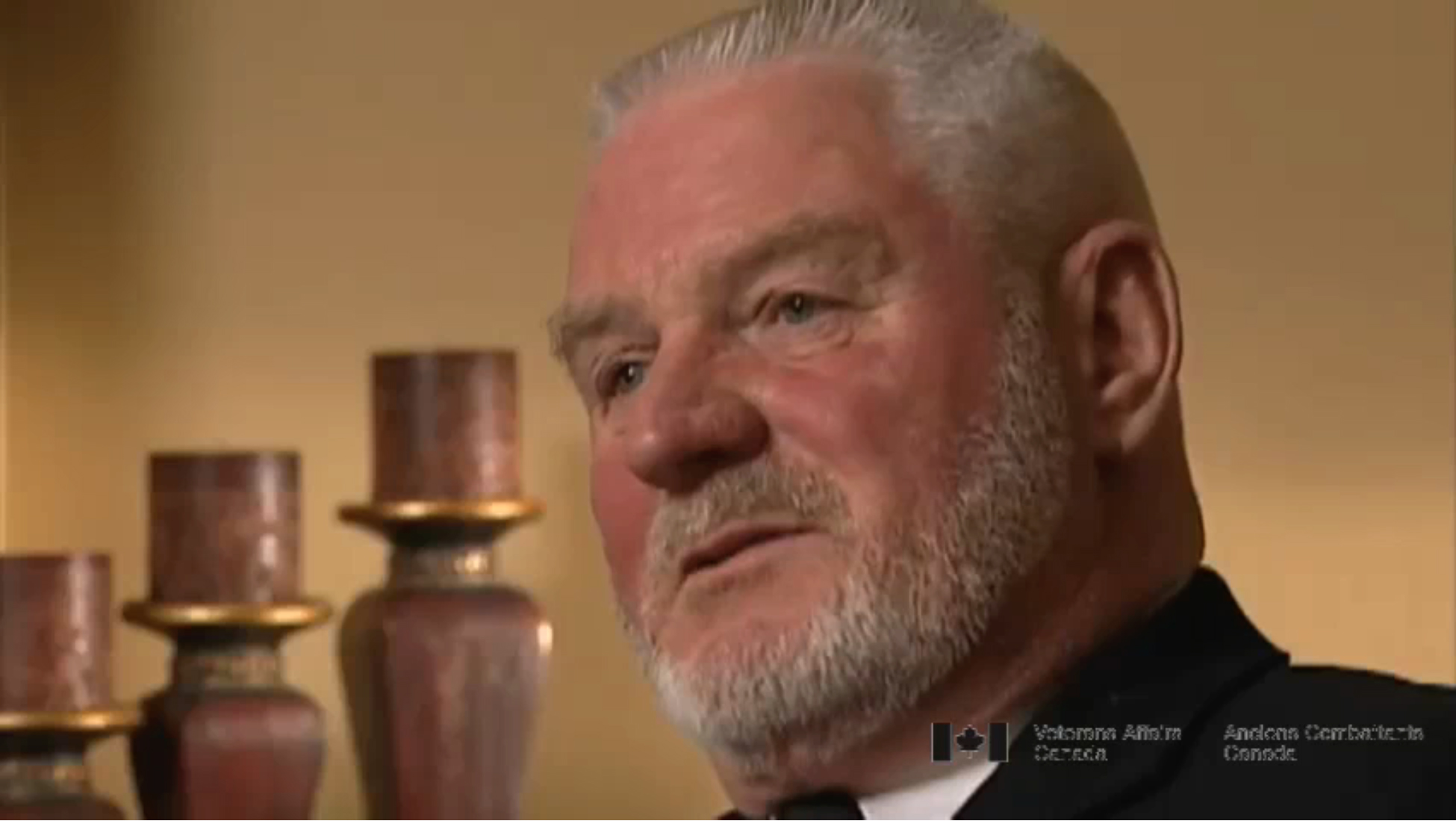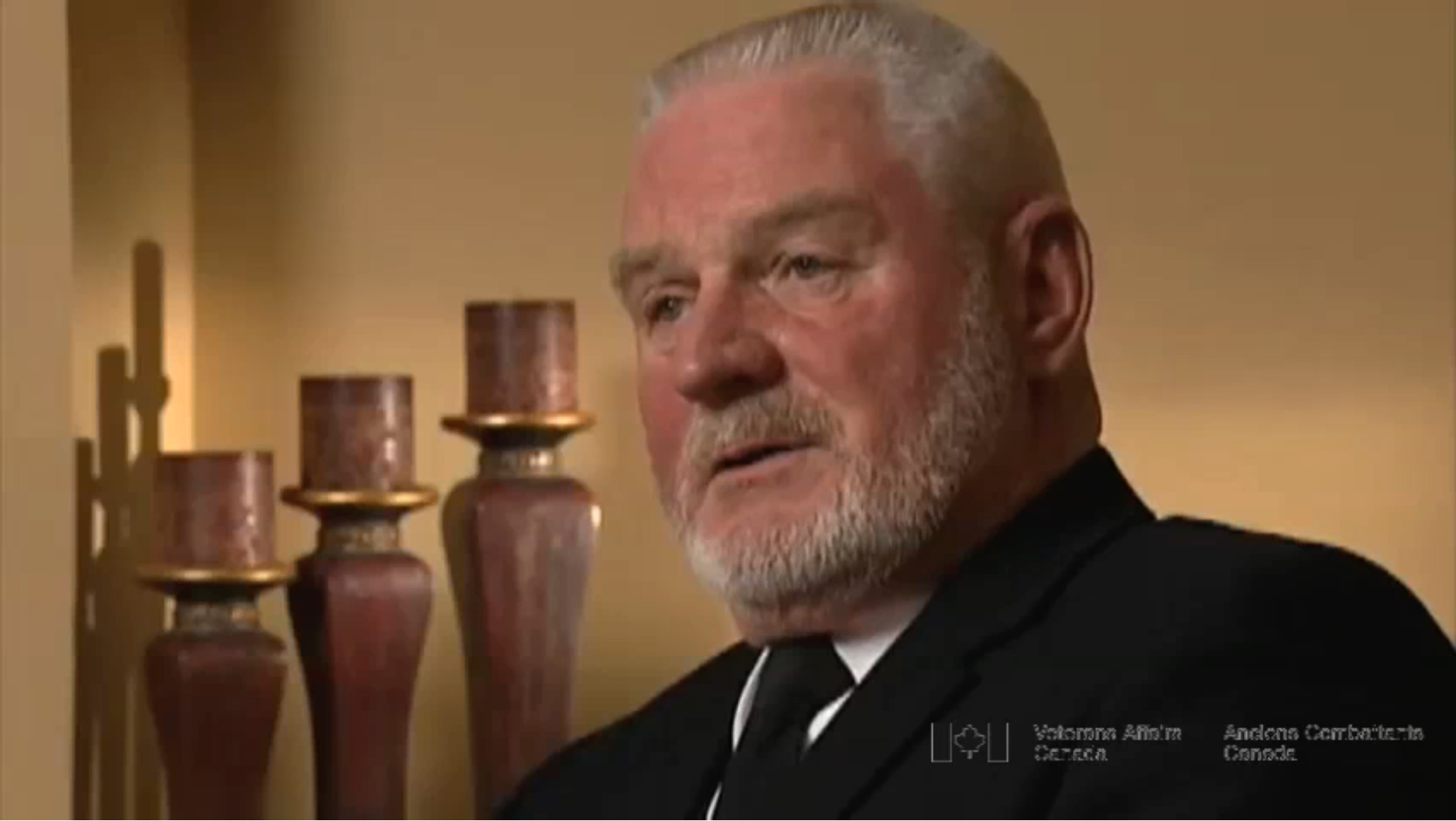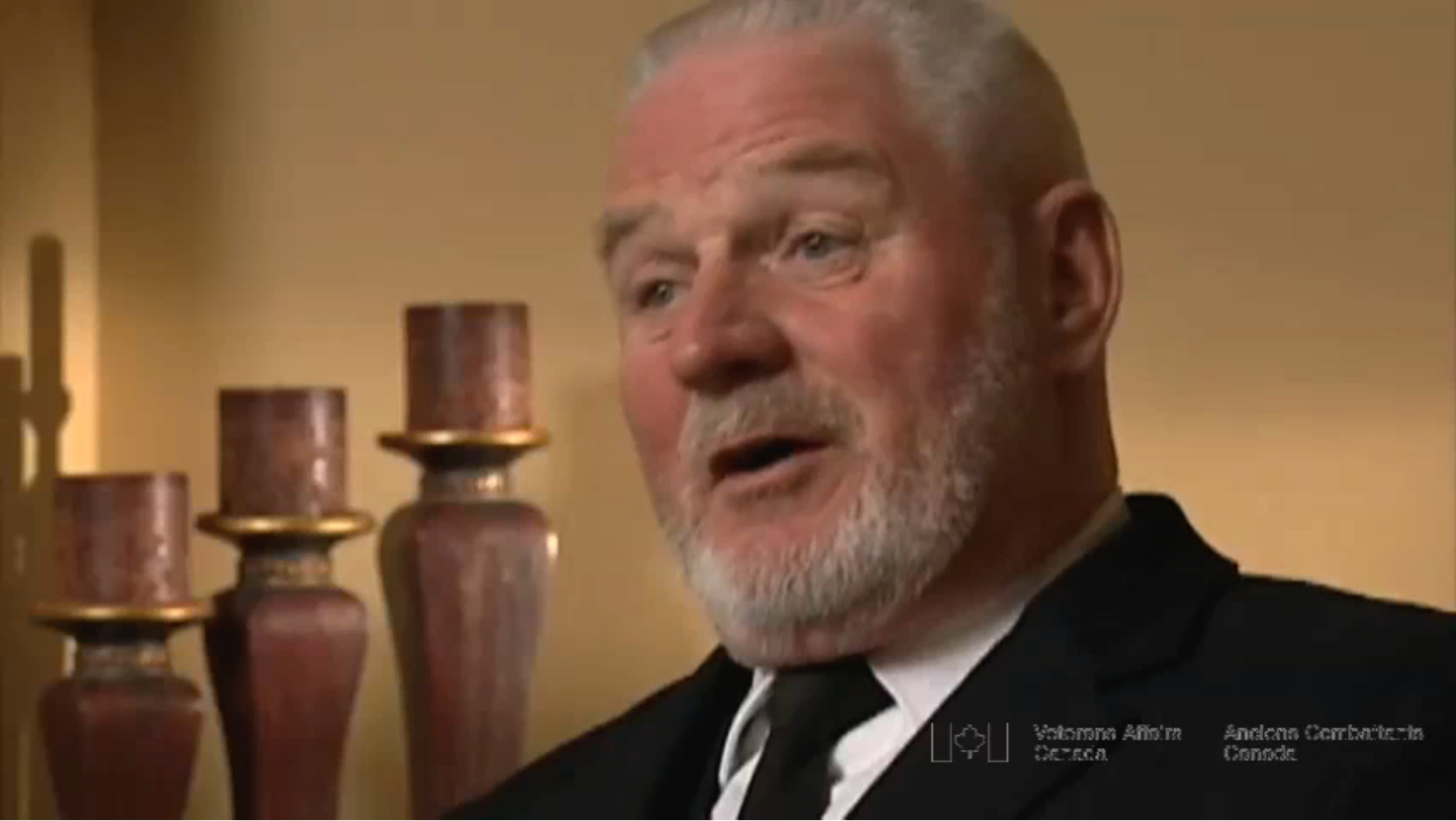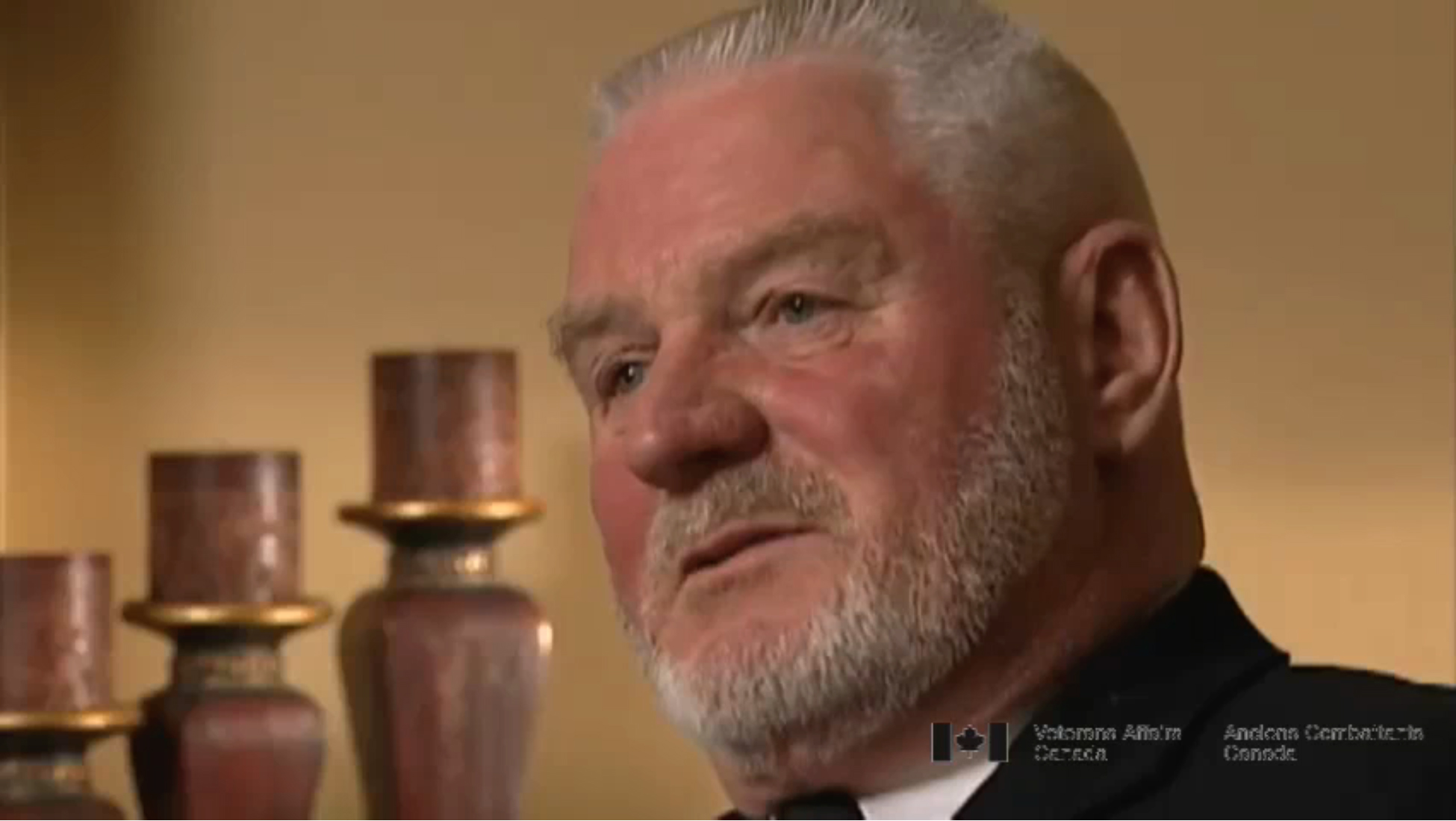You know sometimes you had to take a hard line which we did,
and where sometimes you had to take a hard line was evacuating
the injured when we first got there. Families being transported
out, we were trying to get them out through British helicopters,
and we were doing rather well. But there were certain
people that tried to get out prior, and when I say prior we
were trying to get the old out first, the sick and the wounded
but sometimes you would have to part families for that. So we
ended up being, hey, a soldier’s a soldier so we had to do,
hold our rifles up high, put a barbed wire between them
and their loved ones and that would break your heart watching
them hug each other saying good bye knowing will they ever see
their loved one again and you saying hey am I responsible
for this? But you had a job to do because if they landed where
they were landing in Tusila and they were examined by Serbs,
if they weren’t wounded, they were executed or shot I presume
that’s what happened. And you know so we had to make sure and
little did they know that we were actually doing for their,
their own good really.
We weren’t going to put a perfect good soul on the helicopter
knowing that, you know, you’re going to be executed in forty
minutes when you land. But these people were taken away,
were they executed, I don’t know. See and that’s something
else where we just farming them out to be executed, we don’t
know. I do know the Ameri, or the British helicopters used to
come in were stripped, radios the whole works were stripped.
There were no means of communication because that’s
the way the Serbs wanted it. So, you know, and I used to say
what are they doing to us, setting us up for a fall or?
But that was hard as a soldier; you had to take a hard line and
I’ve saw where we had actually pull a girl off her mother.
I mean, her mother was dying. She had ill, I don’t know she had
internal cancer and it was spreading fast and they said that
she had to get out and we had to pull her daughter off her and
put her back in with the refugees and running back and
forth and taking messages or little love letters from each
other, taking and giving them, but they couldn’t go to touch them
because, you know, and that was hard. That was hard so there’s
where you really had to say okay, I gotta put on a straight face
here and I can’t show my emotions, but it’s hard.
The end of the day you would sit down and say I’m glad today’s
over, now I have to look forward tomorrow,
something else, you know what I mean?



